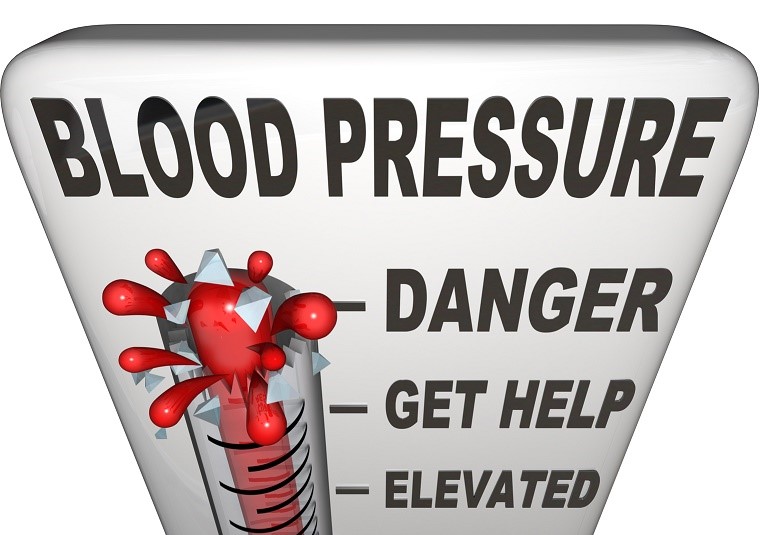7 Health Conditions That Cause Impotence

Male impotence can be caused by a variety of mental, physical, or biological combinations that negatively affect a man’s ability to achieve an erection.
Some of these conditions are directly related to poor circulation where blood flow cannot provide enough pressure to erect a flaccid penis while others change the chemistry of the brain to shut down the necessary signals to maintain an erection.
In most cases, these causes are entirely curable with a few lifestyle changes and an open discussion with a doctor. However, erectile dysfunction can also serve as a warning sign to more serious diseases and health risks.
Here are 7 of the most common health conditions causing or contributing to impotence:
Most Common Conditions Leading to Erectile Dysfunction
Heart Disease
Heart disease is categorized by large buildups of plaque around the arteries that prevent blood from efficiently flowing around the body. This calcification of blood pathways has been linked to male impotence because normal fluid flow is important to both the penis and the heart.
If a man experiences erectile dysfunction, especially during later years without any prior signs like poor diet and lack of exercise, there could be a strong possibility of cardiovascular problems.
Since the penis can only become erect with a flush of rushing blood, any clogging from calcified plaque could impede or even prevent it from happening. Studies have concluded that men with severe erectile dysfunction have a 60% greater chance of developing heart problems than those without the condition if they’ve had circulation problems in the past.
Even for men with clean bills of health, there is still a 35% chance of developing heart disease or other cardiovascular problems if he has recurring issues with male impotence.
High Blood Pressure or Hypertension
High blood pressure causes the lining of the blood vessels and the arteries to harden and narrow over time, similar to the effects of heart disease. The difference is that high blood pressure does not have a visible sign or symptom. When a man experiences erectile dysfunction, there may not be an immediate connection with high blood pressure.
Studies have shown that 30% of men experience at least one instance of erectile dysfunction during any given month, which is perfectly normal and should not cause alarm. However, for men with high blood pressure, there is a 70% chance of experiencing severe male impotence (more than three times a month), which is only apparent in 5% of men without the condition.
Peyronie's Disease
Peyronie’s disease refers to the hardening of a patch of skin either on top or under the penis that produces an odd curvature when erect. Aside from the intercourse complications, the plaque buildup on the penis causes pain whenever blood tries to fill a flaccid penis.
It can cause erectile dysfunction because the hardened scar tissue essentially does not allow the penis to become fully erect and even if one did achieve a semblance of an erection, the pain and curvature alone would make the effort seem pointless.
Diabetes
Men with diabetes have been known to experience male impotence 10 to 15 years earlier than those without the disease. Erectile dysfunction occurs because diabetes or rather the high blood sugar attacks the blood vessels and nerves used to control functions throughout the body, including erections.
For some men, even if he had the correct level of hormones and the physical desire to engage in sexual intercourse, the signals used to trigger an erection may be delayed or stopped midway through.
High cholesterol, a common symptom leading to diabetes, has also been known to restrict blood flow via the fatty buildup of tissue around artery walls. The penis uses those same arteries to transport blood when an erection occurs. Since there is not enough blood moving to the penis, the erection may not be hardened enough for sexual intercourse.
Obesity
Excess weight is known to cause a variety of health problems and erectile dysfunction is a common one. Simply put, when there is an accumulation of fat around the waist, blood flow could be restricted from reaching the penis efficiently. Obesity can also destroy the sex drive and cause testosterone levels to plummet leading to a decline in sex hormones.
Although experts are unsure how exactly excess weight causes erectile dysfunction aside from poor blood circulation, they theorize that the fat damages the inner lining of the penis called the endothelium. Its function to release nitric oxide, which relaxes the muscles in the penis to allow blood to rush in, does not seem to work properly when a man is obese.
Parkinson's Disease
While Parkinson’s disease contributes to tremors and the loss of fine motor skills overtime, it also causes men erectile dysfunction through damage to the central nervous system. It may even be painful to engage in sexual intercourse because of the disease and the psychological effects in the form of depression and anxiety could further the loss of interest.
Some experts have linked male impotence in Parkinson’s disease with the low production of dopamine in the system. Since the nervous system can no longer finely control muscle movements and direct efficient blood circulation, nonessential functions like erections do not occur frequently.
Multiple Sclerosis
As a symptom of multiple sclerosis, erectile dysfunction is caused by the central nervous system’s inability to send the correct signals to the penis to begin producing an erection.
Because MS damages the nerve pathways throughout the body, almost every fine motor skill and movement is affected to the point where multiple signals have to reach the same area in order to effectively do something.
These sex signals have a hard time reaching the penis and can even affect arousal and orgasms. For some men, MS also causes a loss of sensation in the penis leading to an unsatisfactory sexual experience.
The Bottom Line on Diseases Causing ED
So there you have 7 of the most common diseases/afflictions that play a role in impotence. If you are experiencing any degree of erectile dysfunction, it's important to seek medical help to determine whether or not there is something more serious at play.
These conditions won't necessarily cause impotence, but they certainly may play a role and it's important to be aware of the fact that they can affect your performance.
return to our ImpotenceGuide home page
Featured Men's Health Supplement

Check out Total Balance Men's Premium today!
Search Our Site
| advanced |
Popular Articles
Alcohol and ED
What causes impotence?
Best Natural Treatments
Non-Drug Options
Vitamins that can help
Foods that can cause ED
Erectile Dysfunction Age


